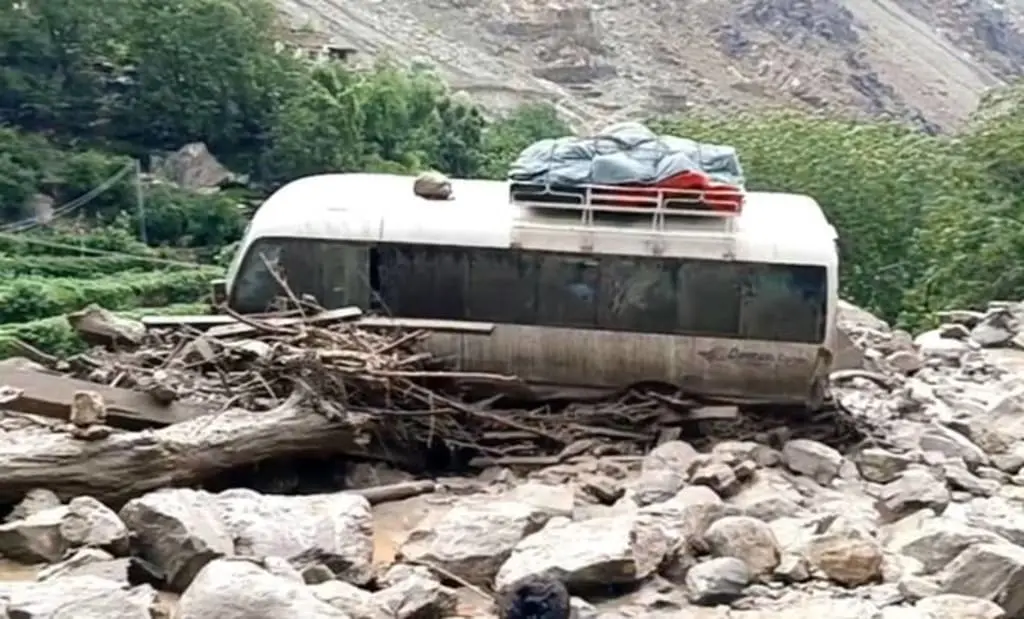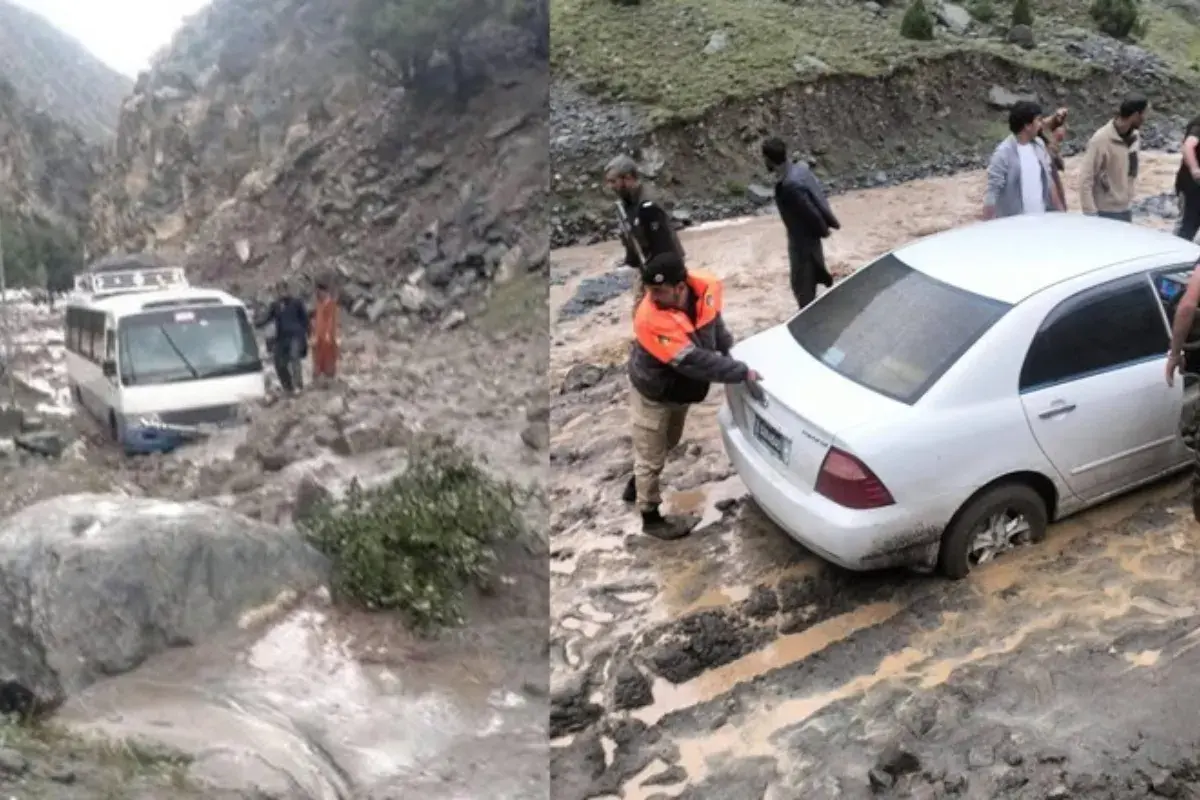Flash Floods and Landslides Disrupt Travel in Pakistan’s North
Torrential monsoon rains and landslides have obstructed multiple sections of the Fairy Meadows Road near Chilas as Pakistan prepares for another wave of intense rainfall from July 28 onwards. Due to continuous heavy downpours, several stretches of this crucial roadway remain impassable, halting aerial rescue operations amid harsh weather conditions.
The National Disaster Management Authority (NDMA) has dispatched teams for relief and recovery, while combined search and rescue missions involving the Pakistan Army and local authorities continue to look for missing individuals in affected zones. Meanwhile, the Khyber Pakhtunkhwa provincial tourism department has issued an advisory alerting about possible flash floods in popular tourist destinations from July 21 to 29, urging visitors to refrain from unnecessary travel and to consult the 1422 tourism helpline before planning their visits.
In another rescue mission, Kaghan Development Authority had rescued more than 500 stranded tourists by a landslide which had blocked the road to Lake Saif-ul-Malook following a sudden cloudburst. More than 117 vehicles had been trapped, but all tourists were brought to safety, according to local officials.
In Balochistan, tragic news emerged as four children drowned in a stream in the Duki district on Friday. This adds the death toll in the province due to monsoons to 20, with 11 children, 5 men, and 4 women. More than 66 houses have been destroyed, and eight people were injured since late June, as the Provincial Disaster Management Authority (PDMA) reported.
The Pakistan Meteorological Department (PMD) forecasts a fresh spell of heavy monsoon rainfall across the country from July 28 to 31. Weak monsoon currents are currently influencing the northern and central regions and are expected to strengthen with an approaching westerly system on July 29. Widespread rainfall accompanied by heavy showers and thunderstorms is anticipated in various parts of the country.
Areas including Azad Jammu and Kashmir and Gilgit-Baltistan—notably Muzaffarabad, Neelum Valley, Rawalakot, Hunza, and Skardu—are expected to experience rain until July 31. Khyber Pakhtunkhwa, covering Swat, Dir, Mansehra, and Peshawar, will also witness rainfall during this period. In Punjab and Islamabad, cities such as Lahore, Rawalpindi, Faisalabad, Murree, and Galiyat will see heavy showers, while southern Punjab, including Multan and Bahawalpur, is forecasted to receive rain between July 29 and 31.
Balochistan’s northeastern and southern areas are likely to face thundershowers and isolated heavy rains from July 29, affecting places like Quetta, Zhob, Khuzdar, and Lasbela. Sindh mostly remains hot and humid, but certain districts like Dadu, Tharparkar, and Sukkur may experience rainfall on July 30 and 31.
The PMD has cautioned about the risk of flash floods in the hilly streams of KP, northeast Balochistan, Punjab, and Kashmir, plus urban flooding in low-lying parts of Lahore, Islamabad, Rawalpindi, and Sialkot. Additionally, landslides and mudslides could cause traffic disruptions in Murree, Galiyat, Gilgit-Baltistan, and other mountainous areas.
In response, rescue teams, civil defense, and municipal departments are instructed to maintain full readiness, particularly in landslide-prone zones and regions with vulnerable housing. Citizens have been advised to avoid unnecessary travel, steer clear of flooded roads, and stay away from exposed electrical infrastructure to ensure safety.


